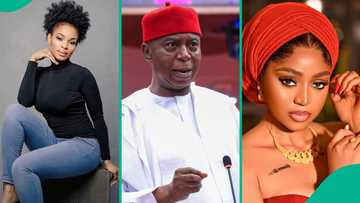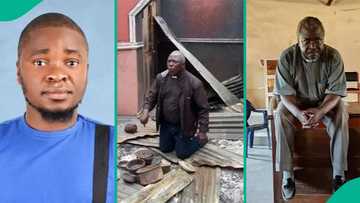Trump, Dachomo and the Cry from Nigeria’s Wilderness
Editor's note: In this piece, Oluwafemi Popoola, a journalist and political analyst, examines Rev. Ezekiel Dachomo’s fiery outcry over widespread attacks in Northern Nigeria and connects it to Donald Trump’s renewed talk of “Christian genocide,” a debate filled with pain, politics, and power.
Sometimes, truth comes clothed not in the glamour of eloquence but in the ragged voice of a man shouting in the wilderness. Rev. Ezekiel Dachomo, to me, embodies that very image of the biblical John the Baptist.
Lone, fierce, defiant, and perhaps doomed to misunderstanding. For years, he has spoken about the blood-soaked soil of Plateau. His voice has consistently pierced through a thick fog of denial and indifference.
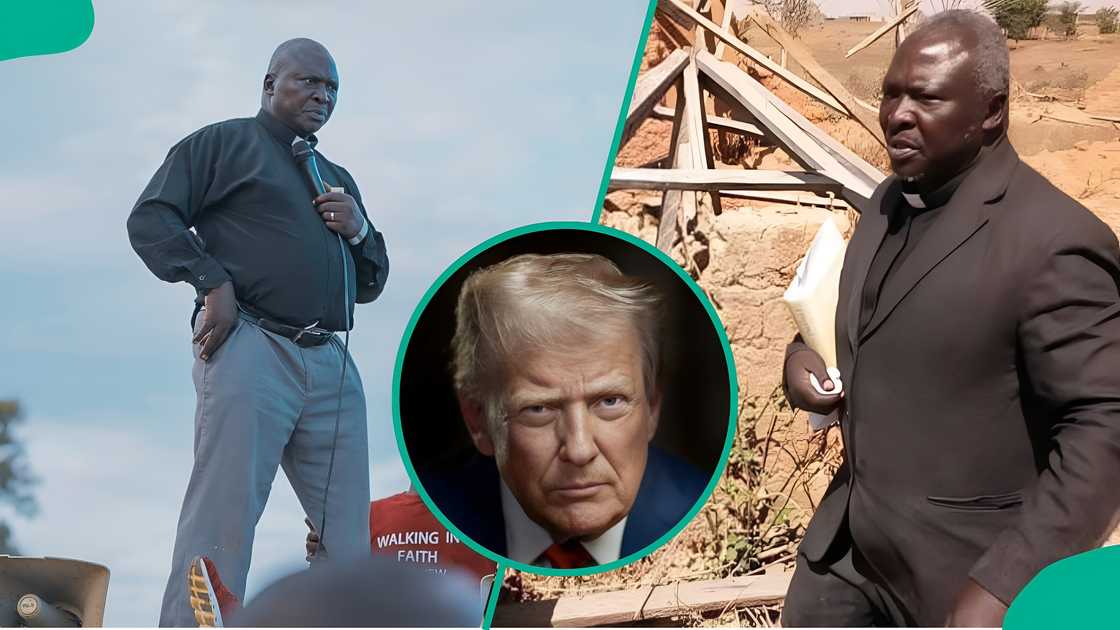
Source: Twitter
On October 15th, he set off a storm of controversy during a somber mass burial for 13 victims slain in attacks blamed on suspected Fulani militants in Rachas village of Heipang District and Rawuru village of Fan District.
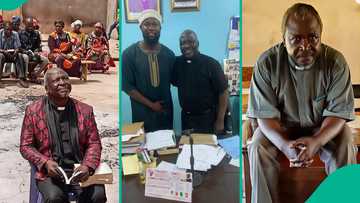
Read also
Reverend Ezekiel Dachomo: What 3 people familiar with fiery Nigerian preacher said about him
In the midst of grief and mourning, Rev. Ezekiel Dachomo went live on video. His voice quivered not with fear but with righteous fury, as he accused the Fulani of orchestrating a calculated plan to annihilate the Christian community in Plateau and across Northern Nigeria.
“They want to wipe us out!” he cried.
It was a lamentation, a sermon, and a prophecy all entwined in one searing moment of truth.
Rev. Dachomo is not speaking from a studio or a safe distance. He has witnessed his church members sláùghtérèd, his community torched, his faith tested in real time.
He has no political godfather. He has no public relations machinery. Only a conscience, raw and relentless. Like John the Baptist, he seems to have taken up residence at the moral edge of the nation, crying out while others feast in Herod’s palace of convenience.
Yet, in a tragic twist, his outcry has become a crime. For daring to call the killings in Plateau what they are, targeted and systematic, he is branded an alarmist, a threat, even an enemy of the state.
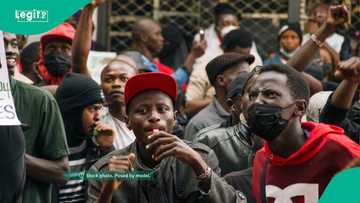
Read also
Mob violence rocks Kwara community as Chief Imam is brutally killed over alleged witchcraft, murder.
The irony is too sharp and scary. A man who buries victims of violence becomes the one hunted for “incitement.” The government, in its usual acrobatics, would rather arrest the mourner than the murderer.
I understand why President Donald Trump’s recent comments about “Christian genocide in Nigeria” have stirred dust. In less than a week, he has mentioned Nigeria thrice, a rare obsession for a man whose attention span rarely survives a news cycle.
Some Nigerians tremble at the prospect of U.S. military involvement. Others mock it, sharing memes and laughter online. There are those, broken and bitter, who welcome it.
They say, “Let America come. At least someone cares.” That, to me, is the deepest wound of all.
When citizens of a supposedly sovereign state openly welcome foreign soldiers to their soil, it is not a gesture of bravery but of despair. It is the confession of a people who have been so betrayed by their own leaders that they now prefer outsiders.
No citizen of a functioning country prays for invasion. The fact that some Nigerians do shows that our leaders, not the terrorists, are the ones we fear and despise the most.
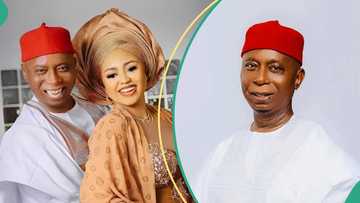
Read also
“My world revolved around Regina Daniels”: Ned Nwoko opens up on how he married actress honourably
For more than a decade, the Nigerian government has treated insecurity as a lucrative investment. They behave like shareholders watching the market of blood. Under President Jonathan, the state hid its head like an ostrich while the carnage spread.
Under Buhari, the ostrich learned to fly, not away from the danger, but over it, surveying the devastation like a manager inspecting a thriving enterprise. Terrorism metastasized, and banditry gained uniformity.
Farmer-herder clashes became the euphemism for mass death. What did the government do? Issue statements, form committees, and occasionally, blame “foreign mercenaries.”
The allegation of “Christian genocide,” of course, is a loaded one. I’ve heard the counterargument that not only Christians are victims, and it’s true, to a point. But it’s also intellectually dishonest.
Telling a survivor who watched his church burn that “Muslims are dying too” is not empathy, it’s gaslighting. You can’t dictate to victims how they should interpret their suffering, especially when you have failed, repeatedly and spectacularly, to prevent it. Pain is personal before it becomes political.
And if the government’s entire defense is that “there is no genocide,” then that, frankly, is a miserable communication strategy. It doesn’t exonerate them; it only reminds us that people are dying under their watch. Denial doesn’t disinfect the blood on the ground. As the philosopher Hannah Arendt once wrote,
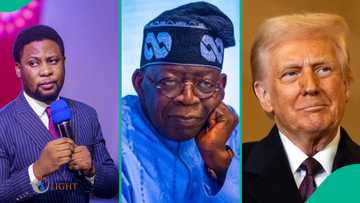
Read also
"He should've kept quiet": Pastor Femi Lazarus under fire over comments on invasion threat by Trump
“The moment we stop thinking in moral terms, we lose the capacity to be shocked.”
Nigeria’s rulers, I fear, have reached that point, unshockable, unmoved, and unashamed.
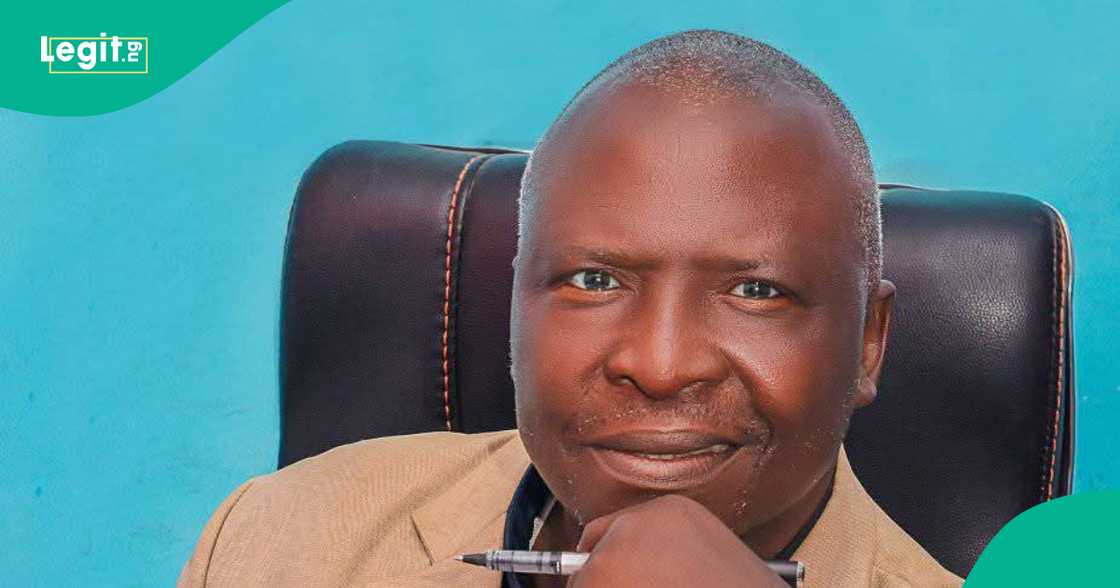
Source: Facebook
Some say this whole “Christian genocide” narrative is an export commodity. They argue that powerful lobbyists have sold it to Trump to advance other interests. Maybe so. I wouldn’t be surprised.
This is not the first time Nigeria has been designated a “Country of Particular Concern” by the U.S. Commission on International Religious Freedom (USCIRF). From 2009 to date, every annual report has recommended that label for us. But it was Trump, the same Trump, who finally acted on it in 2020.
When Joe Biden took office, he promptly removed Nigeria from the list. The USCIRF protested like a jilted lover, “You ignored our recommendation!” they cried. The irony is delicious. It’s almost as if America is in an on-and-off toxic relationship with our religious crisis.
Still, we must face a sobering truth that nations don’t act out of compassion; they act out of calculation. The U.S. doesn’t suddenly love Nigerian Christians. Trump, after all, once called African countries “shitholes.”
This is the same man who cancelled visa privileges for Nigerians because our government refused to take back deportees. Suddenly, he is our savior? No. America is not a charity. Every move it makes comes with an invoice.
When I listen to Trump speak now, I hear less of a missionary zeal and more of a geopolitical maneuver. Nigeria has become a chessboard where religion, politics, and global influence collide. What breaks my heart is that we have allowed ourselves to be pawns.
For almost two decades, we’ve endured terrorism like a chronic illness. We have buried sons, daughters, pastors, imams, and farmers. We have prayed. We have protested. We have pleaded. Still, the violence persists.
Rev. Dachomo’s cries, then, are not just about faith; they are about fatigue. They echo the weariness of a people who have watched their homeland disintegrate into a geography of graves.
He is like a voice standing knee-deep in blood, shouting to a deaf nation. He reminds me of what Albert Camus once said in The Plague: “The only way to fight the plague is with decency.” And perhaps that’s all he’s asking, for decency, for truth, for a state that values life over rhetoric.
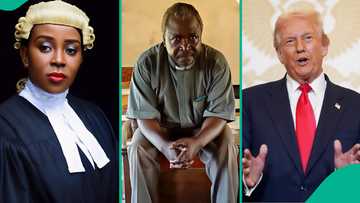
Read also
"Protect this man": Lawyer writes open letter to Trump, seeks asylum for Rev Ezekiel Dachomo
History has shown that America never intervenes without interest. There’s always oil, influence, or ideology on the menu. If the U.S. decides to act, it will not be because of love for Christians or Africa, but because of what it stands to gain.
The question, therefore, is not whether America should help, but what we, as Nigerians, are willing to lose or compromise if it does. Are we ready to trade one form of subjugation for another?
Curiously, under Goodluck Jonathan’s government, Nigeria once begged the same America for help against terrorism. It was unfortunately turned down.
Now, the tables seem to have turned. America is volunteering its “help.” Suspicious, isn’t it? Like a neighbor who ignored your house burning but shows up later offering to sell you a fire extinguisher at a premium price.
Where are the other shepherds? Where are the generals of faith who fill our stadiums with crusades and our airwaves with promises of divine breakthrough? Why has the Church in the South gone mute while their brethren in the North bury their dead under the open sky?
Is it that the screams from Plateau and Benue cannot reach beyond the walls of Lagos and Port Harcourt? Or perhaps, like Pilate, they wash their hands in public while dining with Caesar in private, unable to speak because their friends in government might frown?
I salute Rev. Ezekiel Dachomo, that lone voice in our wilderness of blood and betrayal. In a nation where silence has become survival, he dares to speak. And if truth must come wearing sackcloth, then let him wear it proudly. Because until the wilderness itself stops echoing, someone must keep shouting.
Oluwafemi Popoola is a journalist, political analyst, and columnist with 8 years’ experience, providing in-depth commentary on governance, public policy, and democracy in Nigeria and beyond.
Disclaimer: The views and opinions expressed here are those of the author and do not necessarily reflect the official policy or position of Legit.ng.
Proofreading by Funmilayo Aremu, copy editor at Legit.ng.
Source: Legit.ng

